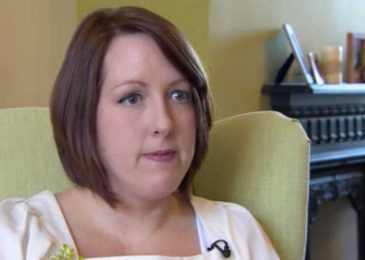 AUSTIN, Texas — An assistant attorney general for the state of Texas told a federal judge during oral argument this week surrounding new rules for the disposal of aborted babies that “fetal tissue is not human remains” under the law and is simply “pathological waste” since the child hasn’t yet been born.
AUSTIN, Texas — An assistant attorney general for the state of Texas told a federal judge during oral argument this week surrounding new rules for the disposal of aborted babies that “fetal tissue is not human remains” under the law and is simply “pathological waste” since the child hasn’t yet been born.
“Fetal tissue is not human remains for the purposes of this statute,” Assistant Attorney General John Langley replied in response to a question from U.S. District Judge Sam Sparks, who pondered whether the rule requiring burial or cremation of aborted babies conflicts with the state’s current cremation law. The law allows human ashes to be sprinkled on private property without permission—which could include landfills.
Langley’s position was that the state cremation law and the aborted baby burial requirement did not conflict because “fetal tissue is not human remains” under Texas law.
“So it’s the official doctrine of the state that fetal tissue is not human remains?” Sparks inquired. “So you’re bringing dignity to non-human remains?”
“[Texas cremation law] deals with human bodies—bodies that have been born, lived and died. Fetal remains are categorized as pathological waste. It’s not a human body. It hasn’t been born,” Langley later stated. “It’s the state’s best effort to try to make the best of this situation.”
Sparks was holding a two-day hearing as part of a lawsuit filed by several Texas abortion facilities who took issue with the new burial requirement. Langley was serving to defend the rule for state.
“There’s no health benefit [to the new rule], no problem to be fixed,” Sparks, appointed to the bench by then-President George H.W. Bush, opined during the hearing. “I think all life needs dignity, but that’s not the point.”
While asserting that “fetal tissue” differs from human remains under the law, Langley told Sparks that the new regulation did indeed serve a purpose: that disposing of “fetal tissue” down the sewer or dumping incinerated remains into the landfills “is not the appropriate way to respect life.”
As previously reported, in Texas, abortion facilities customarily contract with third party medical waste companies to dispose of the aborted babies, which are usually classified as “pathological waste.” The containers of aborted babies, mixed in with boxes of bodily fluids, tissues and other items that are not permitted to be thrown in the trash, are then transported to an incineration plant where they are burned into ash and then dumped into landfills.
However, current Texas law also allows for other types of disposal, including “grinding and discharging to a sanitary sewer system,” “chlorine disinfection/maceration followed by deposition in a sanitary landfill” or other “approved alternate treatment process, provided that the process renders the item as unrecognizable, followed by deposition in a sanitary landfill.”
Last month, the Department of State Health Services finalized a rule at the request of Gov. Greg Abbott that requires abortionists to utilize burial or cremation services provided by funeral homes rather than hiring medical waste companies to dispose of the children with other medical trash.
But days later, several abortion facilities filed suit to stop the regulation from going into effect, including Whole Woman’s Health, Brookside Women’s Medical Center, Austin Women’s Health Center, Alamo Women’s Reproductive Services and others. As previously reported, the medical waste company Stericycle was fined $42,000 in 2011 for dumping fetal remains from Whole Woman’s Health with household and commercial trash.
The lawsuit was filed in part by the New York-based Center for Reproductive Rights.
On Dec. 15, Judge Sparks issued a temporary injunction, halting the rule, and on Tuesday and Wednesday, he heard oral argument over the issue.
“I find the interference by the government into women’s personal health decisions to be morally offensive,” Amy Hagstrom Miller, president of Whole Woman’s Health, argued.
Miller also presented a witness, Unitarian Universalist minister Debra Haffner, who asserted that the rule suggests that life begins at conception, and that requiring cremation or burial favors one type of religious belief over another since not all religions agree on when life begins.
It was also argued that the requirement would be too expensive for abortion facilities.
“We have absolutely no idea how it’s going to affect the cost,” Langley acknowledged, but also suggested during the hearing that abortionists could pool together and utilize a mass grave for the remains of aborted babies, which he said would cost less than $2 a baby.
He additionally advised that the Texas Conference of Catholic Bishops, which also testified, has offered to bury the babies without charge. Executive director Jennifer Carr Allmon outlined that all 15 of its diocese are willing to provide space in unmarked graves, possibly with boxes stacked on top of each other, reports High Plains Public Radio.
“We have the necessary resources for the burial of the children,” she said. “Burial of the dead is a ministry we provide to all people, regardless of how they died.”
However, her repeated reference to aborted babies as human beings was soon clarified by state attorneys as not being a “legal term of art,” CBS News outlines.
Sparks is expected to rule on the matter near the end of the month.
“I am confident in our arguments today and in the constitutionality of these rules,” Attorney General Ken Paxton said in a statement following the hearing. “Texas values the dignity of the remains of the unborn and believes that fetal tissue should be disposed of properly and humanely. I look forward to the court upholding the rules on January 27.”
[youtube https://www.youtube.com/watch?v=WH9ZJu4wRUE&w=660&h=400]
A special message from the publisher…
 Dear Reader, because of your generous support, we have received enough funds to send many audio Bibles to Iraqi and Syrian refugees displaced by ISIS in the Middle East. Many have been distributed and received with gladness. Now, as the cold winds of winter blow in, we are seeking to also meet the physical needs of the people by providing fuel-operated heaters for the refugees and their children to stay warm. Would you join us by making a donation today to this important work (James 2:16)? Please click here to send a heater to a refugee family >>
Dear Reader, because of your generous support, we have received enough funds to send many audio Bibles to Iraqi and Syrian refugees displaced by ISIS in the Middle East. Many have been distributed and received with gladness. Now, as the cold winds of winter blow in, we are seeking to also meet the physical needs of the people by providing fuel-operated heaters for the refugees and their children to stay warm. Would you join us by making a donation today to this important work (James 2:16)? Please click here to send a heater to a refugee family >>





